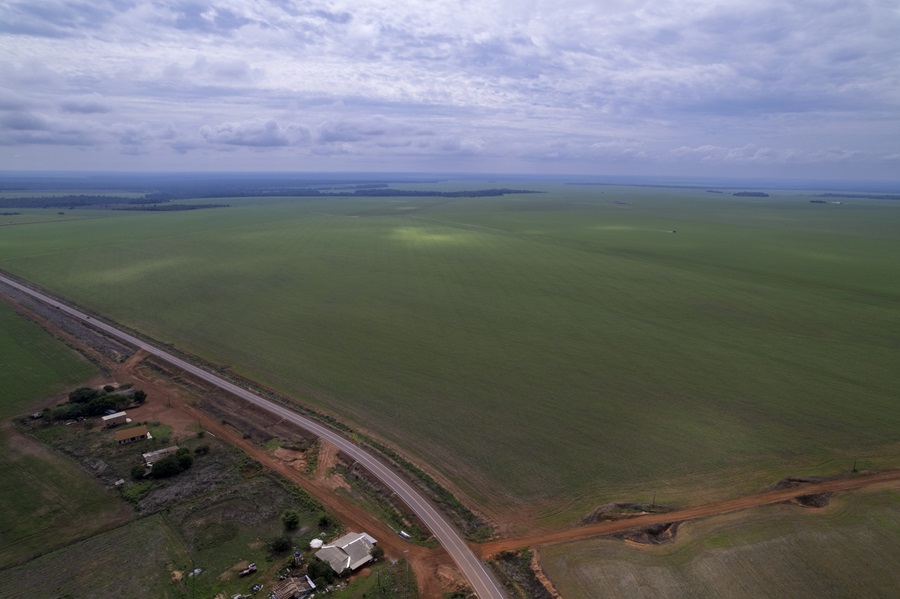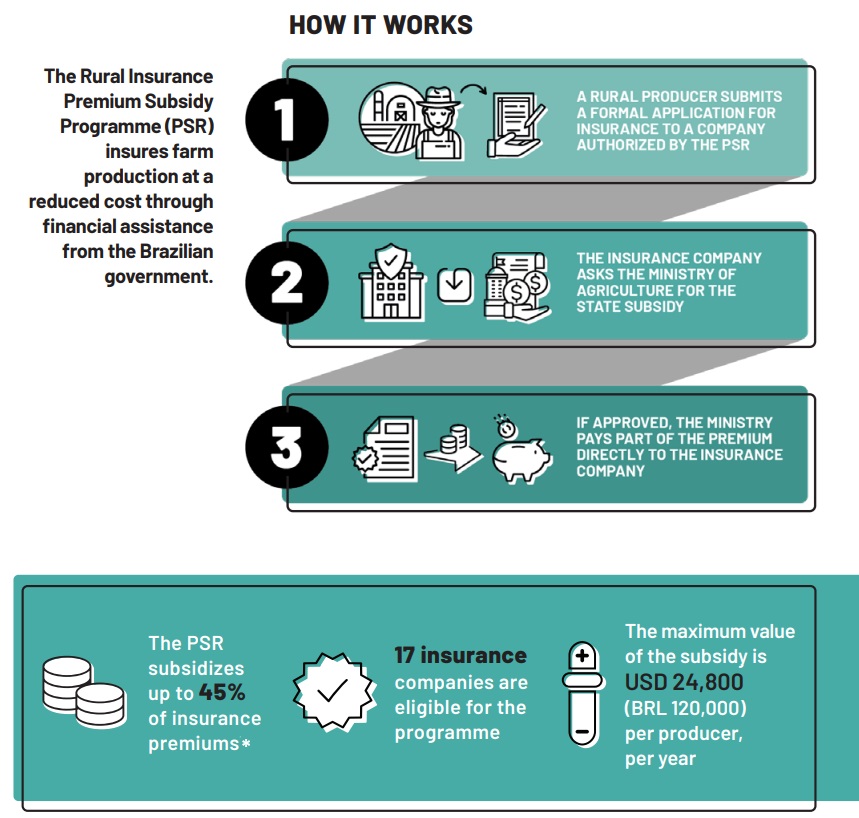FARMERS WITH ENVIRONMENTAL INTERDICTIONS had access to public funds by contracting subsidized agricultural insurance in 2024. A survey by Repórter Brasil identified five properties in different regions of Mato Grosso that had areas embargoed for illegal deforestation in the Amazon and contracted policies from Brasilseg and Mapfre, partially funded with federal government money. Brasilseg is a subsidiary of Banco do Brasil. A total of BRL 52,700 thousand (USD 8,667) in subsidies was paid, and the benefited properties account for 1,821.4 hectares under embargo.
The properties contracted insurance through the PSR (Rural Insurance Subsidy Program). Through this program, the federal government covers part of the policy costs as an incentive for the country’s agricultural and livestock production. In 2023, the Brazilian Ministry of Agriculture and Livestock (Mapa) allocated 933.1 million BRL (153 million USD) in subsidies for rural insurance contracts, according to the PSR 2023 Report.
Repórter Brasil‘s survey used data from the PSR, Mato Grosso state embargoes, and Ibama (Brazilian Institute of the Environment and Renewable Natural Resources).
In February, an investigation by Repórter Brasil revealed similar situations involving policies subsidized by Mapa in previous years. At the time, the ministry stated its expectation to implement, still in 2024, a system to verify the existence of embargoed areas overlapping with farms applying for subsidies.
:: Also read: Rural Insurance Dossier: Multinational insurers cover properties within Indigenous territories, with environmental embargoes or linked to slave labor
When asked again, Mapa stated that the system is still in the homologation phase and is expected to become operational only in the first quarter of 2025. The ministry also informed that it will investigate the new cases reported in the article. If the plots listed in the policies are found to overlap with embargoed areas, the insurers will be notified to cancel the operations and reimburse the subsidized amounts through the PSR (read the full response here).
Environmental interdictions
In the city of Guarantã do Norte, cattle rancher Egídio Brambilla had approximately two-thirds of his land embargoed due to illegal deforestation. The embargoes total 204.3 hectares.
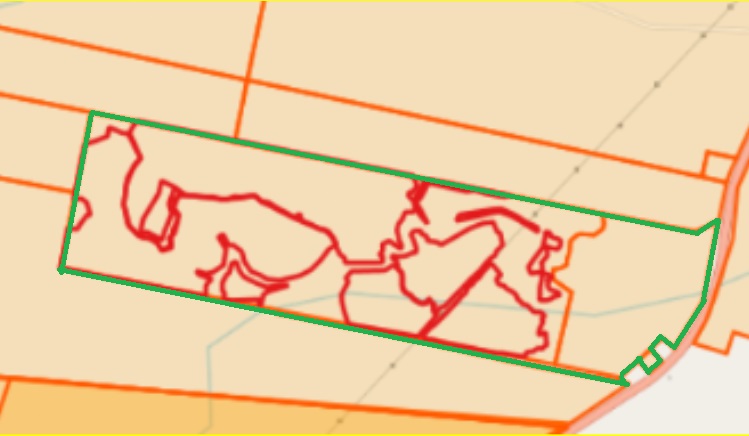
After the embargoes were imposed in 2021, the property’s original CAR (Rural Environmental Registry) was modified. The Fundo da Grota Farm, which originally spanned 341.5 hectares and encompassed all of Brambilla’s land in the area, was reduced to a registered perimeter of only 64.4 hectares, as shown in the image below.
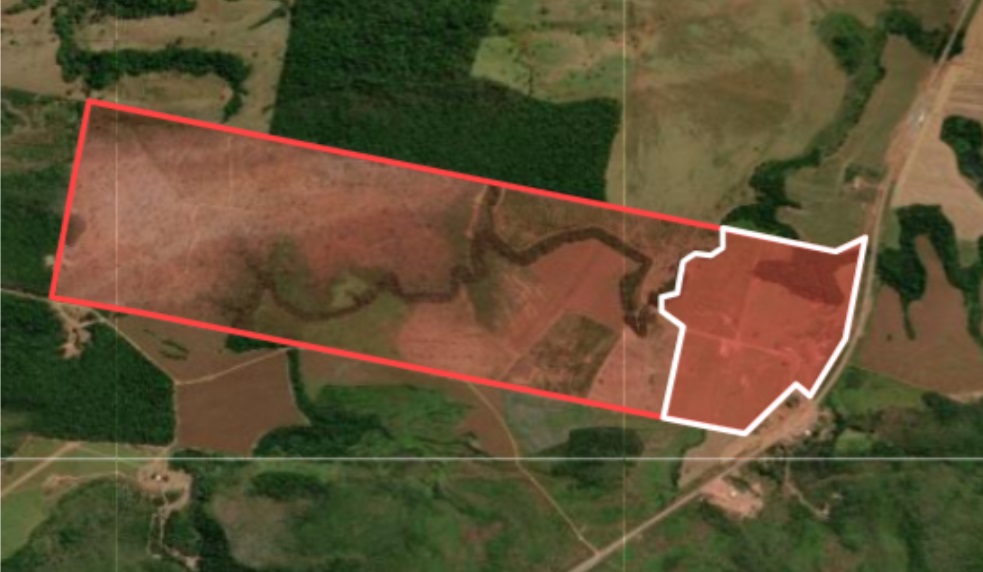
A study by the organization CCCA (Center for Climate Crime Analysis) revealed that these alterations are becoming a common practice among farmers in the Amazon. By changing the boundaries of their farms, landowners “erase” environmental violations such as embargoes and manage to avoid restrictions on obtaining credit, for example.
In 2024, the cattle rancher contracted insurance from Brasilseg, a joint venture between Banco do Brasil and the Spanish insurer Mapfre, with BRL 2,600 (USD 427) subsidized. The insurance coordinate disclosed by the Ministry of Agriculture aligns with a CAR (Rural Environmental Registry) with no embargoes. The contracted insurance is for livestock, which covers the herd. The report team visited the region in November and observed cattle grazing on the farm, including areas under embargo. No fences were identified separating the two CAR areas in the rural registry.
Repórter Brasil contacted Brambilla’s attorney, responsible for his defense in the administrative process with Sema-MT. She stated she was unaware of the use of the embargoed area or the alteration of the CAR. The report team also tried to contact Brambilla, but there was no response. The space remains open for further statements.
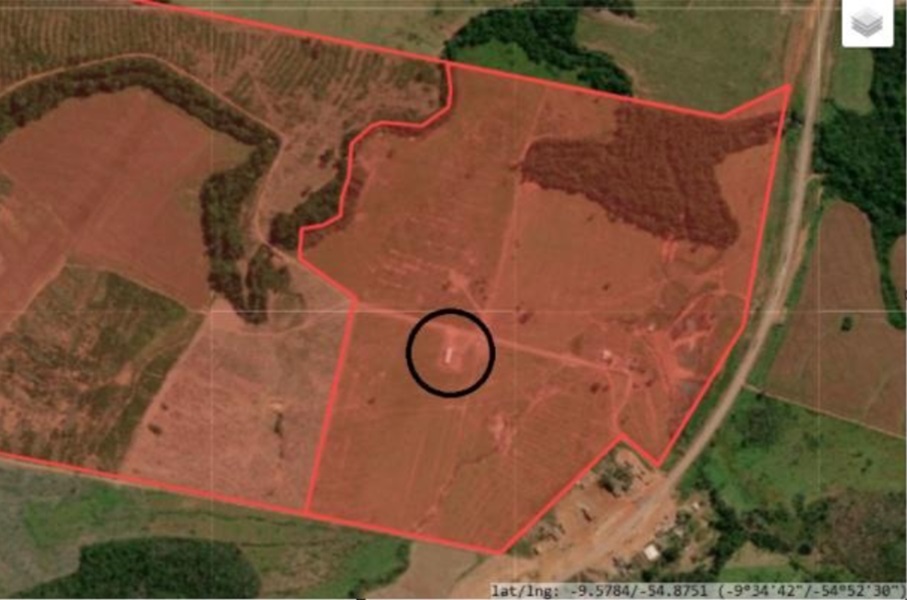
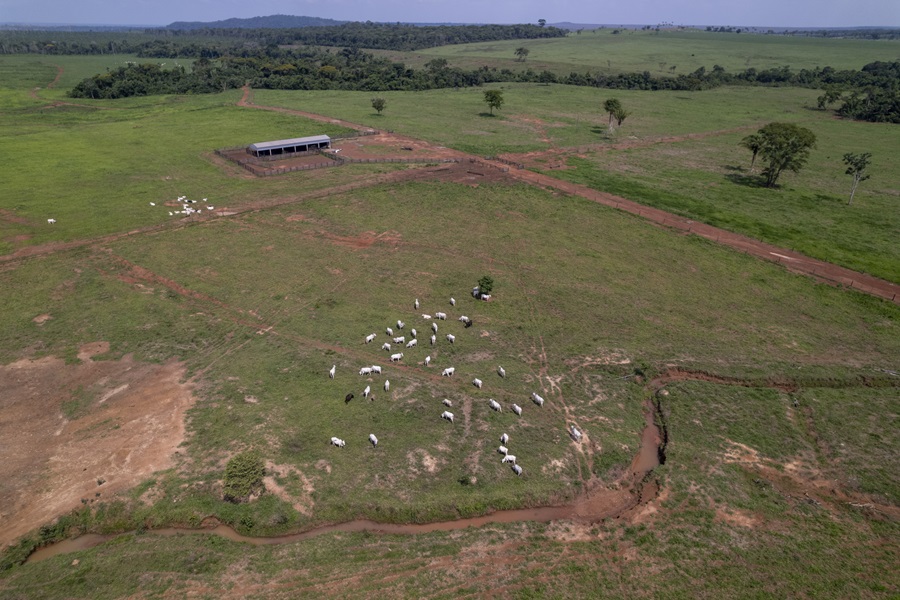
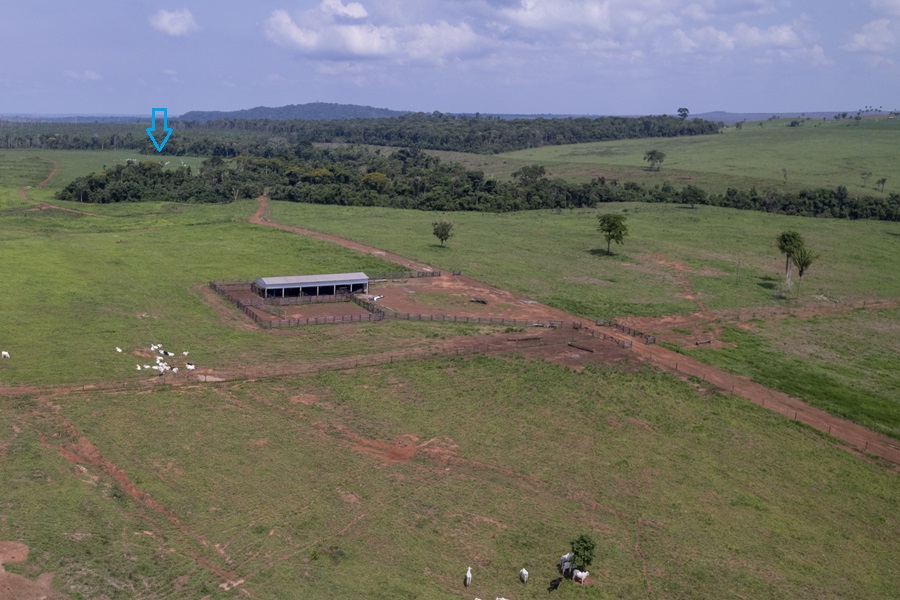
In Paranaíta (MT), a similar case exists. Several contiguous areas are registered in CARs under the name of Leonildo Greco and other individuals with the same surname. An Ibama embargo covering 1,400 hectares, issued in Leonildo’s name, spans across five of these CARs, as shown in the image below. Additionally, there are other federal embargoes in the area registered under the names of other individuals with the Greco surname.
In August 2024, Leonildo was fined by Sema-MT and penalized with a BRL 7.1 million (USD 1.16 million) fine for conducting livestock activities within the embargoed area.
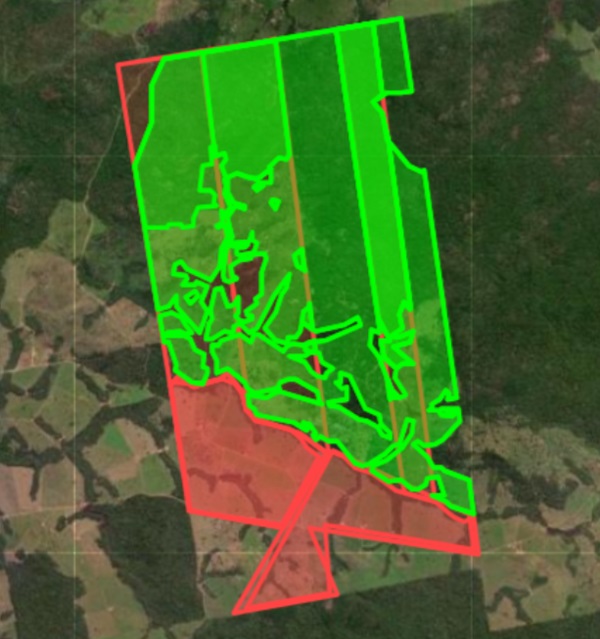
Also in 2024, Leonildo contracted livestock insurance from Brasilseg, with a BRL 2,600 (USD 427) subsidy. The insurance coordinates disclosed by the Ministry of Agriculture fall within one of the CARs in the group that is not under embargo.
However, satellite images analyzed by the organization Aid Environment, at the request of Repórter Brasil, suggest evidence of livestock activity even within the embargoed area. The organization also indicates that the CARs likely divide the property only in theory, while in practice, it functions as a single property.
Repórter Brasil contacted Greco’s lawyer, who stated that he had no knowledge of the situation. The space remains open for future statements.
Soybeans with insurance

The report team visited the roads bordering the farms and spoke with local merchants and residents, who stated that the properties effectively function as a single farm. While surveying the area, no fences or other signs were observed to indicate that they are separate properties. Soybean crops cover the entire perimeter. Aerial images analyzed by Aid Environment also suggest that it is a single productive property, with soybean cultivation extending to other adjacent plots.
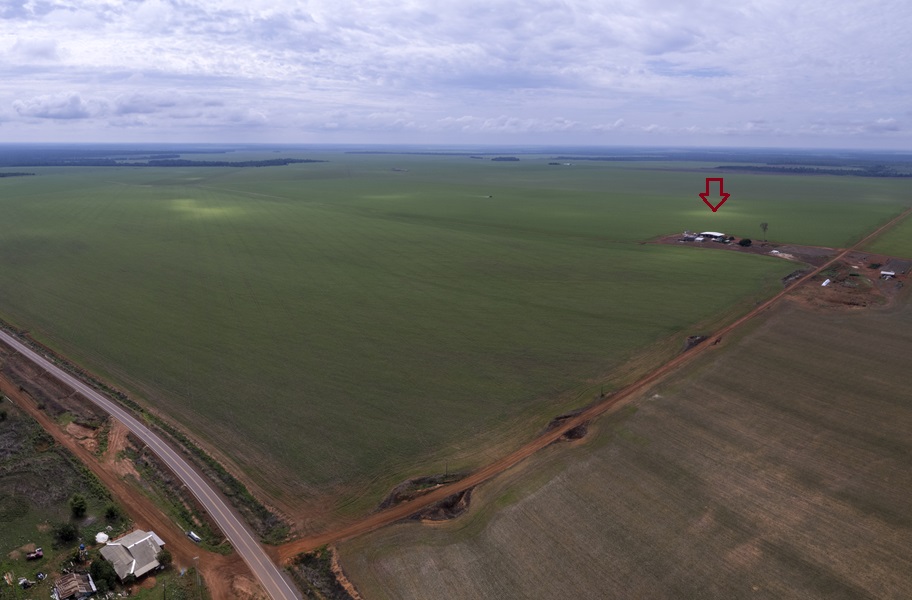
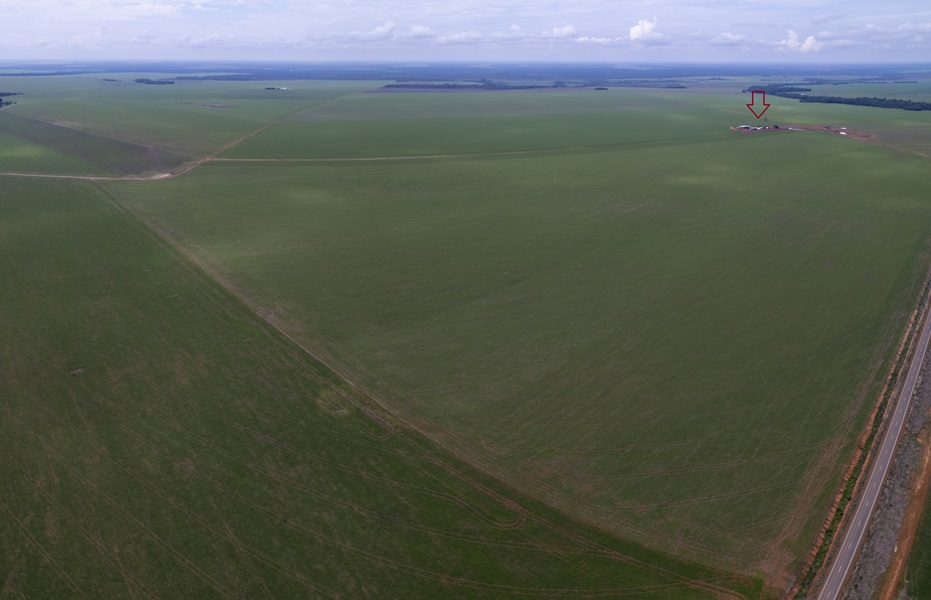
Noronha and Pedroski contracted policies with Brasilseg in 2023 and 2024 to insure soybean and corn production, receiving BRL 13,500 (approximately USD 2,230) in subsidies through the PSR program. The coordinates of the policies disclosed by the Ministry of Agriculture fall within the CAR areas registered by the landowners, both of which are crossed by the embargo.
The report team sent an email to Noronha but received no response. Pedroski could not be contacted. The space remains open for further statements.
In Marcelândia (MT), the Adonai Farm, owned by Clara Renita Schwanke, had an area of 147.9 hectares embargoed by Sema-MT in December 2023 due to illegal deforestation. The landowner signed a Commitment Term for Degraded Area Recovery with the state government and, since January 2024, has held a Provisional Rural Operation Authorization. However, the farm remains under an active embargo.
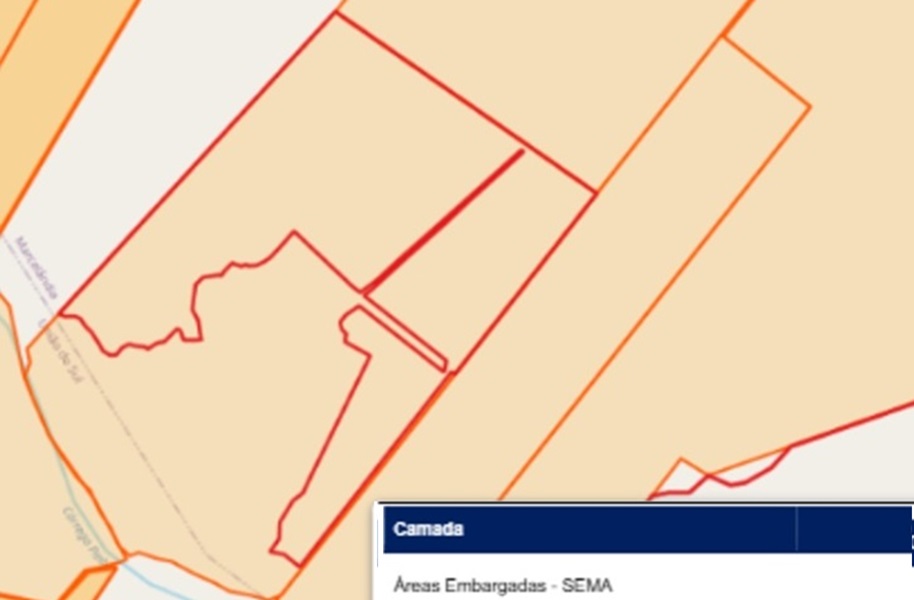
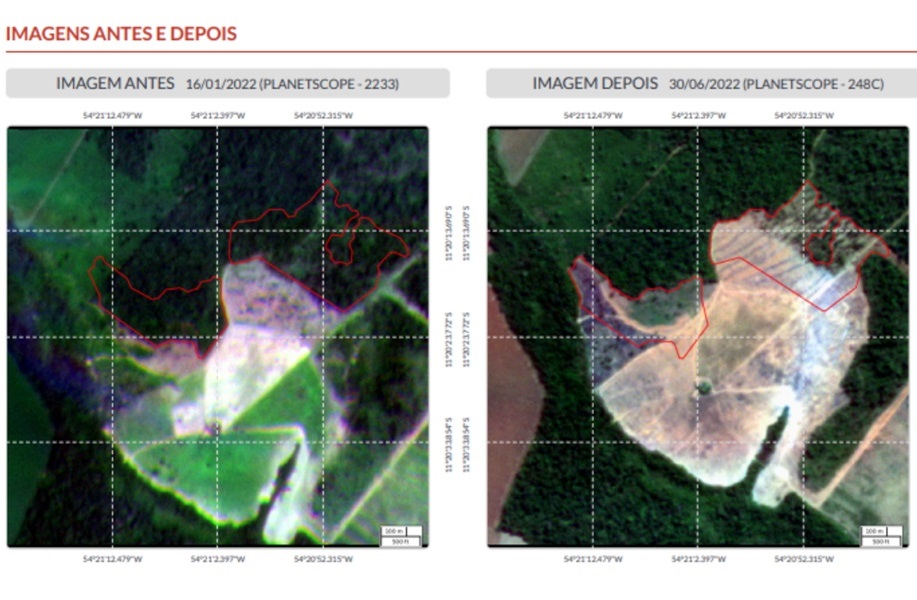
Schwanke contracted four insurance policies with subsidies from the PSR, two through Brasilseg and two through Mapfre, in 2024. She also contracted three other insurance policies in her name for surrounding properties. In total, she benefited from BRL 44,900 (approximately USD 7,400) in federal government subsidies.
Schwanke’s lawyer stated that the landowner is complying with the Degraded Area Recovery Plan agreed upon with the Mato Grosso government in the soybean cultivation and that she had no interest in commenting.
The report team also visited the road bordering the farm and observed plantations, as shown in the image below. However, the existence of cultivation specifically within the property’s embargoed perimeter was not verified.
However, this situation may be considered an exception. A study published in 2022 by researchers from the Federal University of Pará and INPE (National Institute for Space Research) showed that 87% of environmental embargoes are not enforced in the Amazon, with 80.9% of the areas continuing their activities with cattle and 6% with agriculture.
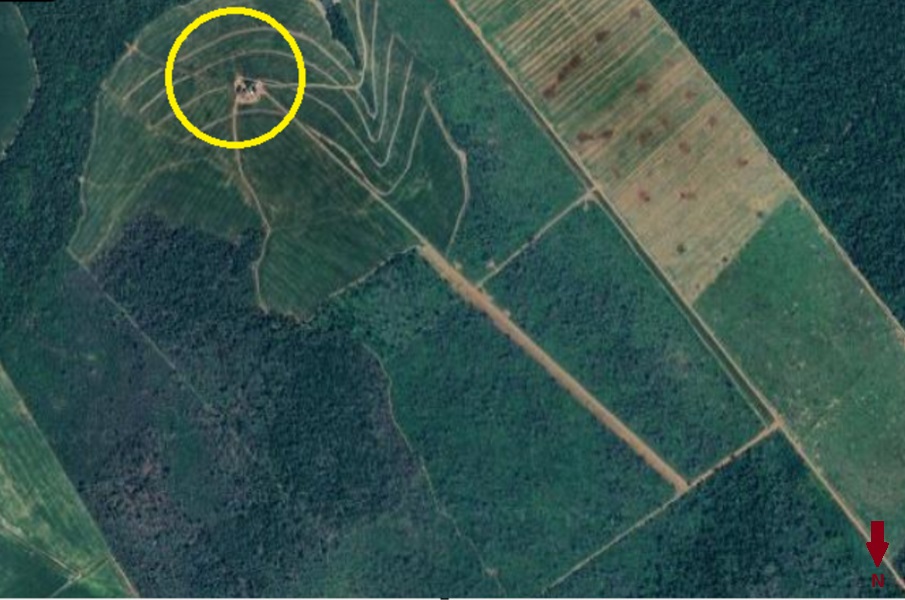
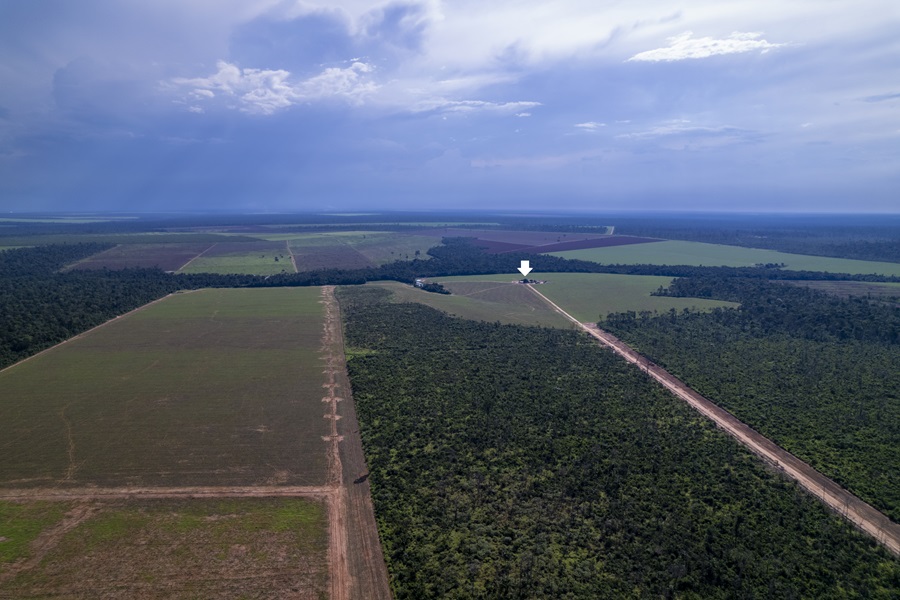
Mapfre stated that, regarding the Adonai Farm case, the “policies mentioned in the report refer exclusively to areas with no prior or current embargo” and that “in the environmental, social, and governance (ESG) criteria checks conducted during the policy underwriting process, as well as in its continuous monitoring, no failures or limitations related to the insured area were identified,” since the landowner holds a production authorization.
Regarding the other cases, Mapfre did not comment. The company also emphasized that it conducts continuous monitoring of restrictive lists, ensuring the compliance of its operations with the best ESG (Environmental, Social, and Governance) practices, which guide its actions globally.
Also contacted to comment on all cases involving its clients, Brasilseg stated that it does not comment on specific cases, that it monitors cases via satellite, and that it “operates in strict compliance with the law.” Read the full responses here.
Rules are lacking for the sector
Circular No. 666 of Susep (Superintendence of Private Insurance), the agency responsible for overseeing the insurance market in Brazil, requires insurers to implement risk management and sustainability policies but does not specify the criteria to be assessed.
Priscila Souza, Senior Manager for Public Policy Evaluation at CPI (Climate Policy Initiative)/PUC-Rio (Pontifical Catholic University of Rio de Janeiro), states that the sector lacks socio-environmental regulations. “In rural credit, there are a series of restrictions and prohibitions; producers cannot have environmental embargoes on their property. In insurance, we still don’t have a rule preventing this from happening,” she comments.
According to Souza, it is contradictory for public policies to benefit landowners with embargoes. “The climate crisis primarily impacts agriculture itself, which has suffered significant losses due to deforestation. At the same time, we have public resources directed to embargoed areas for deforestation, which is driving this entire crisis,” she analyzes.
Leia também
